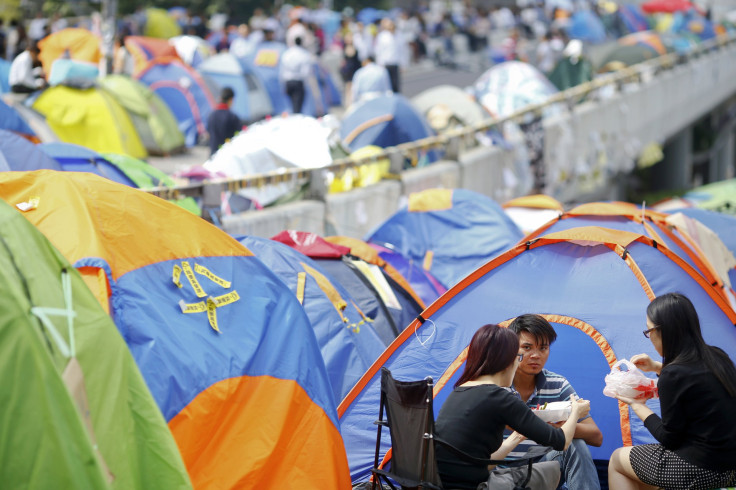Hong Kong Update: China Will Punish City If Occupy Central Protests Continue, Says Former Banking Chief

China could “punish” Hong Kong for the now monthlong Occupy Central protests, warns a former head of Hong Kong’s central bank. Joseph Yam, now an executive vice president of the advisory group China Society for Finance and Banking, alluded that Beijing may seek to lessen its reliance on Hong Kong as its bridge to the international finance scene by moving operations elsewhere.
“Hong Kong's economic prosperity was built on its intermediary role between the mainland and overseas, especially in the financial realm," said Yam, according to Reuters. “(When) the intermediary is uncooperative, unreliable, trouble-making, the mainland will for sure reduce reliance, make a fresh start at another place, have two strings to its bow and lessen preferential policies toward Hong Kong amid the economic reform process.” Yam was the chief executive of the Hong Kong Monetary Authority from 1993 to 2009.
K.C. Chan, Hong Kong’s secretary for financial services and the treasury, told the city’s Legislative Council that financial indicators show little impact from the protests, but “any prolonged protests would inevitably affect the confidence of the local and overseas investors, which would in turn increase the potential risk to our financial market.”
Occupy Central crowds have shrunk from the tens of thousands to a few hundred in recent weeks. Protest leaders remain insistent in their demands that Hong Kong Chief Executive Leung Chun-ying step down and Hong Kong be allowed to vote freely for any candidate in the 2017 elections for chief executive. Beijing refuses to budge and Leung insists he won’t resign. The monthlong protests have divided residents. Many criticize the protests for blocking much-needed roadways and hampering their everyday lives.
China has kept a strict line against those who speak out in support of the protests or criticize authorities. James Tien, a member of the Chinese People’s Political Consultative Conference, was voted out of the advisory body this week after suggesting that Leung resign for his handling of the protests. He also criticized protesters for ignoring orders to disperse. Chow Yun-fat, the movie star, was reportedly blacklisted from working in mainland China for supporting the protests. The "Crouching Tiger, Hidden Dragon" actor dismissed the blacklisting.
© Copyright IBTimes 2024. All rights reserved.












